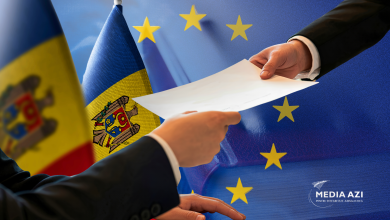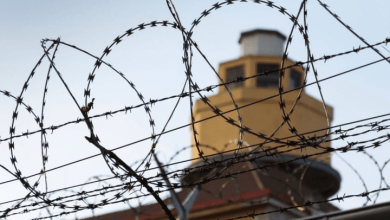Report // Arrests, avoiding publication of information on human rights violations, and other systemic challenges faced by Greek media

Challenges to media independence and the safety of journalists have become systemic in Greece, according to the study “Controlling the message: Challenges for independent reporting in Greece”, shared by the International Press Institute. The report was prepared in December 2021 by the Media Freedom Rapid Response (MFRR) in collaboration with Reporters Without Borders. The research includes over 30 interviews on media topics.
The authors of the research note that while the problems in Greece are not unique, their intensity “is highly problematic” and stands apart from most other EU Member States. According to them, “news that is inconvenient or unflattering for the government, which includes reporting on serious human rights violations, does not get reported in many outlets.” “This creates a significant obstacle for the public’s access to information and, subsequently, their informed participation in the democratic process,” the report says.
Researchers believe that the fragmentation of the media landscape and the current state of the press have been shaping up for more than ten years, following the perpetuation of financial and political crises, which have affected Greece and have also had an impact on the way journalism is understood there. At the same time, there has been a deterioration of press freedom since Nea Dimokratia’s electoral victory in 2019, the party “obsessed with controlling the message” and “minimizing critical and dissenting voices”.
The report also mentions the murder of crime reporter Giorgos Karaivaz, which drew international attention to the significant problems with journalists’ safety. According to it, “the investigation progress appears slow and lacks basic transparency,” which “leads to mistrust” about the authorities’ ability or willingness to protect the media community.
The authors of the report note that migration policy, human rights violations, and the humanitarian crisis that the refugee stream has created are highly sensitive topics for Greek government, and reporting on these issues in the media is increasingly difficult, as journalists face obstacles, including arbitrary arrest and detention, restriction of access to migration hotspots, surveillance, and harassment.
Coverage of protests is another particularly problematic issue for journalists in Greece. “Journalists face aggression and harassment from law enforcement and from protesters. Overall, there is a lack of political will to ensure that journalists can safely report from demonstrations, which translates to a lack of adequate protection at the operational level,” the report also says.
In this context, the MFRR issued a series of recommendations to the Greek authorities and the European community, including the institutions of the European Union and other EU Member States. You can find more details here.



